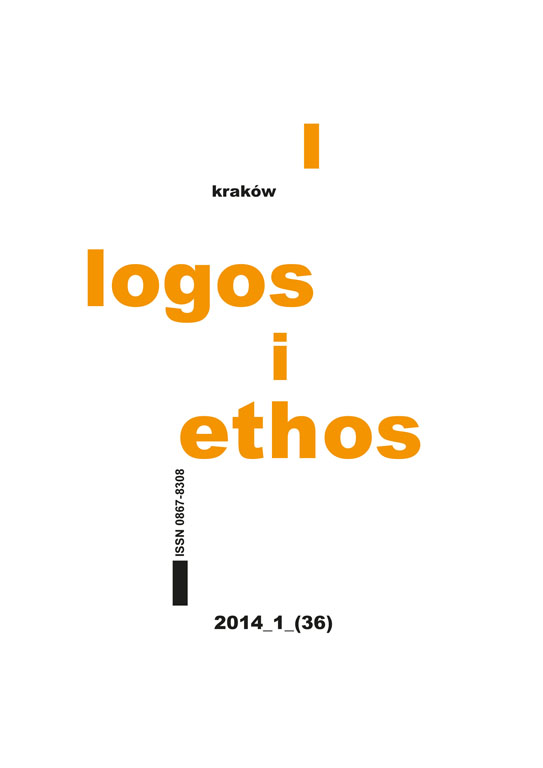Zagadnienie istoty prawdy w rozprawie Martina Heideggera Bycie i czas
DOI:
https://doi.org/10.15633/lie.33Słowa kluczowe:
truth, the more fundamental truth, correspondence, proposition, openness, phenomenonAbstrakt
Heidegger claimed that traditional understanding of the truth as correspondence of the proposition with the entity is grounded in more primordial phenomena. He called them “the more fundamental truth”. Heidegger pointed out that the latter also comprise of such phenomena as Entdeckend-sein der Aussage and Erschlossenheit of the human Dasein. However, Heidegger’s attempt to call these phenomena as “the fundamental truths” can be justified only when they possessed so key character as the traditional concept of the truth. The latter understands its content as a basic regulative idea which is binding for all our thinking and talking about anything real. That is why the truth is considered as a necessary condition of possibility of any authentic bond among people. This key character of the truth does not exist in the mentioned-above phenomena. Hence, the attempt to call them “the truth” seems to be unjustified and mistaken.
Bibliografia
Fräntzki E., Die Kehre. Heideggers Schrift „Vom Wesen der Wahrheit”, Pfaffenweiler 1985.
Heidegger M., Bycie i czas, tłum. B. Baran, Warszawa 1994.
Heidegger M., Koniec filozofii i zadanie myślenia, [w:] M. Heidegger, Ku rzeczy myślenia, tłum. K. Michalski, J. Mizera, C. Wodziński, Warszawa 1999.
Heidegger M., Vom Wesen der Wahrheit, wyd. 7, Frankfurt am Main 1986.
Pöggeler O., Droga myślowa Martina Heideggera, tłum. B. Baran, Warszawa 2002.
Tischner J., Od prawdy sądu do prawdy egzystencji, „Analecta Cracoviensia” 4 (1972), s. 51–67.
Tugendhat E., Der Wahrheitsbegriff bei Husserl und Heidegger, wyd. 2, Berlin 1970.
Pobrania
Opublikowane
Numer
Dział
Licencja
Prawa autorskie (c) 2014 Roman Rożdżeński

Utwór dostępny jest na licencji Creative Commons Uznanie autorstwa 4.0 Międzynarodowe.
Autorzy publikujący w czasopiśmie udzielają jego wydawcy zgody o następującej treści:
- Autor zachowuje autorskie prawa majątkowe do utworu, a jednocześnie udziela wydawcy czasopisma zgody na jego pierwszą publikację w wersji drukowanej i wersji online na licencji Creative Commons Uznanie autorstwa 4.0 Międzynarodowe oraz zgody na wykonywanie opracowań, w tym przekładów.
- Autor ma możliwość udzielania zgody niewyłącznej na opublikowanie utworu w wersji, która ukazała się w czasopiśmie (np. zamieszczenia go w repozytorium instytucjonalnym lub opublikowania w książce), wraz z informacją o jego pierwszej publikacji w czasopiśmie.
- Autor może umieścić swój utwór online (np. w repozytorium instytucjonalnym lub na swojej stronie internetowej) jeszcze przed zgłoszeniem utworu do czasopisma.

